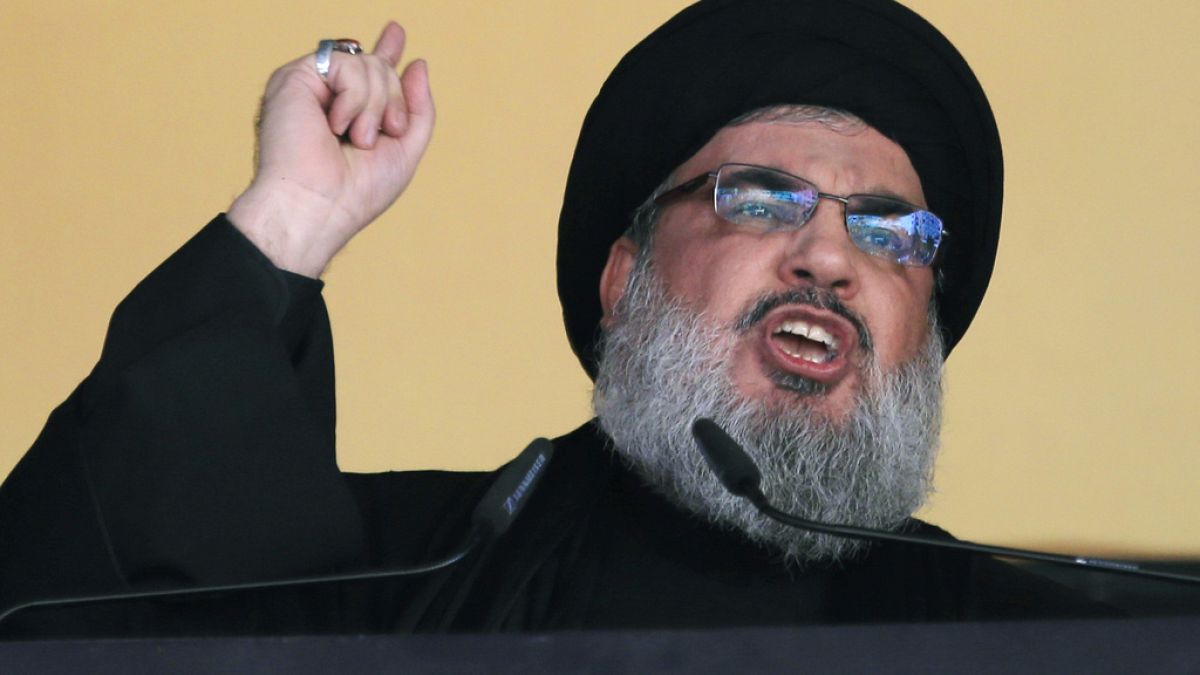Hezbollah has been a name synonymous with power and influence in the Middle East, led by their leader Hassan Nasrallah for the past three decades. Born into a poor Shiite family in Beirut, Nasrallah rose through the ranks to become a key player in the establishment of Hezbollah, a group formed by Iranian Revolutionary Guard members to fight Israeli forces. Despite living in hiding for fear of Israeli assassination attempts, Nasrallah has transformed Hezbollah into a formidable paramilitary force in the region, participating in conflicts in Lebanon, Syria, and against Israel.
Nasrallah’s leadership of Hezbollah has been marked by significant milestones, starting with the war of attrition that forced Israeli troops to withdraw from south Lebanon in 2000. His iconic status was solidified during the 34-day war with Israel in 2006, where Hezbollah fought to a stalemate. Additionally, Hezbollah played a key role in Syria’s civil war, siding with President Bashar Assad’s forces despite facing backlash from the Arab world. Nasrallah’s defiance against Israel has been evident in recent conflicts, where he has maintained a strong stance against Israeli aggression and vowed to continue attacks until a cease-fire is reached.
The recent Israeli airstrikes targeting Nasrallah in Beirut’s southern suburbs have once again highlighted the ongoing conflict between Israel and Hezbollah. While the Israeli military claims the strikes targeted Hezbollah’s headquarters, the exact objective of killing Nasrallah has not been officially confirmed. Nasrallah, considered an extremist by the West but respected across the Arab and Islamic world, holds the title of sayyid denoting his lineage to the Prophet Muhammad. Despite his pragmatism and strategic prowess, Nasrallah’s presence has been a thorn in Israel’s side, leading to ongoing tensions and conflicts between the two factions.
Hezbollah’s involvement in the Israel-Hamas war, as a “backup front” for Gaza, further exemplifies Nasrallah’s determination to confront and challenge Israeli forces. By attacking Israeli military posts along the border, Hezbollah aimed to divert attention from Hamas and force Israel to negotiate a cease-fire in Gaza. The escalation of tensions between Hezbollah and Israel, including strikes targeting Hezbollah commanders and communication devices, is indicative of the turbulent relationship between the two adversaries. As Nasrallah continues to defy Israeli threats and assert Hezbollah’s strength in the region, the conflict shows no signs of abating.
In conclusion, Hassan Nasrallah’s leadership of Hezbollah has been characterized by strategic acumen, defiance against Israeli aggression, and a commitment to challenging regional powers. Despite living in hiding and facing numerous assassination attempts, Nasrallah has transformed Hezbollah into a powerhouse in the Middle East, participating in conflicts in Lebanon, Syria, and against Israel. The recent Israeli airstrikes targeting Nasrallah in Beirut underscore the ongoing tensions between Israel and Hezbollah, with Nasrallah’s determination to defend his group’s interests and confront Israeli forces. As the conflict continues to unfold, Nasrallah’s role as a key player in the region’s geopolitics remains crucial, shaping the future of Hezbollah and its influence in the Middle East.










